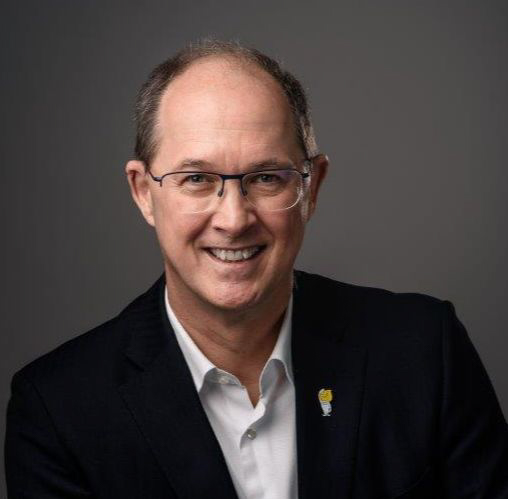
 Rainer Bogner of ExxonMobil Business Support Center in Prague pointed out that looking back and knowing what would come, we would not design the office as it is. Wider office that is hundreds or thousands kilometers away also brings about tax and social security issues. During the pandemic outbreak, resilience and problem-solving drive was strengthened in the ExxonMobil team, as well as soft competences such as flexibility or patience.
Rainer Bogner of ExxonMobil Business Support Center in Prague pointed out that looking back and knowing what would come, we would not design the office as it is. Wider office that is hundreds or thousands kilometers away also brings about tax and social security issues. During the pandemic outbreak, resilience and problem-solving drive was strengthened in the ExxonMobil team, as well as soft competences such as flexibility or patience.
"Mentoring programs for our younger people have been valuable."
 Jaroslava Rezlerová of ManpowerGroup Czech Republic shared related data.There are 5 million of active workforce, out of which1.5 million work in offices. „The work left the building.“ Still, hybrid work is a likely scenario. "We will never work 100% from home." ManpowerGroup has been running a support call centre. They left the building in March and did not return to the office since, as most of them did not really need to do their work physically in the office. Still, for some type of activities there will be need to switch to hybrid work (a combination of work from home and in the office).
Jaroslava Rezlerová of ManpowerGroup Czech Republic shared related data.There are 5 million of active workforce, out of which1.5 million work in offices. „The work left the building.“ Still, hybrid work is a likely scenario. "We will never work 100% from home." ManpowerGroup has been running a support call centre. They left the building in March and did not return to the office since, as most of them did not really need to do their work physically in the office. Still, for some type of activities there will be need to switch to hybrid work (a combination of work from home and in the office).
Managers will have to grow into leaders.
 Rebecca Grattan of Avast Software explained the emotional "contract" with employees, related office space adjustments (silent zones for focused work, collaborative space), and presented the plans of Avast, including „work from anywhere“ arrangement. „I believe organizations will become more emotionally connected and less legally connected.“ EU legislation working hours, employment law, tax, place of residence (where do our responsibilities end?) is something that organizations need to look into hard.
Rebecca Grattan of Avast Software explained the emotional "contract" with employees, related office space adjustments (silent zones for focused work, collaborative space), and presented the plans of Avast, including „work from anywhere“ arrangement. „I believe organizations will become more emotionally connected and less legally connected.“ EU legislation working hours, employment law, tax, place of residence (where do our responsibilities end?) is something that organizations need to look into hard.
The motivation for managers to become leaders can be increased by explainig to them that they will be able to manage people in a more relaxed way, a way that is less stressful.
 Andrea Hepnerová pointed out issues emerging alongside a long-term work from home, such as the ability to stay creative when isolated - could it diminish? - or the importance of mental regime and daily routine.
Andrea Hepnerová pointed out issues emerging alongside a long-term work from home, such as the ability to stay creative when isolated - could it diminish? - or the importance of mental regime and daily routine.
"Digital transformation accelerated a dramatic workforce transformation. This transformation will include hard skills as well as soft skills. We will see qualitative shifts in leadership capabilities."
AmCham issues shared and raised for the future included:
1. Defining labor law for the new reality of work.
2. Corporate identity in a work from anywhere in the world. How much of social function will companies continue to play? Should companies build a stronger online identity? Will purpose, and social agenda, play an even greater role?
3. Leadership development. What should managers be learning on how to lead in the new reality?
4. The emotional “contract” with employees. Will this seep into compensation? Will establishing such an emotional bond include shifting away from salaries to compensating for company performance (a fixed base plus a larger potential gain)?
Thank you, Rebecca Grattan of Avast, Jaroslava Rezlerová of ManowerGroup Czech Republic and Rainer Bogner of ExxonMobil Business Support Center and Andrea Hepnerová for sharing your thoughts & experience.